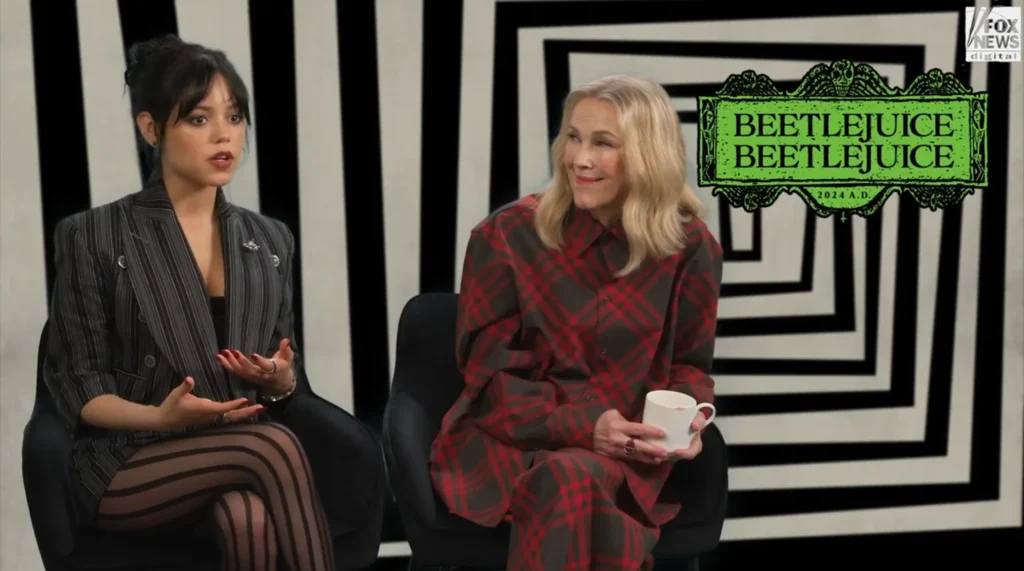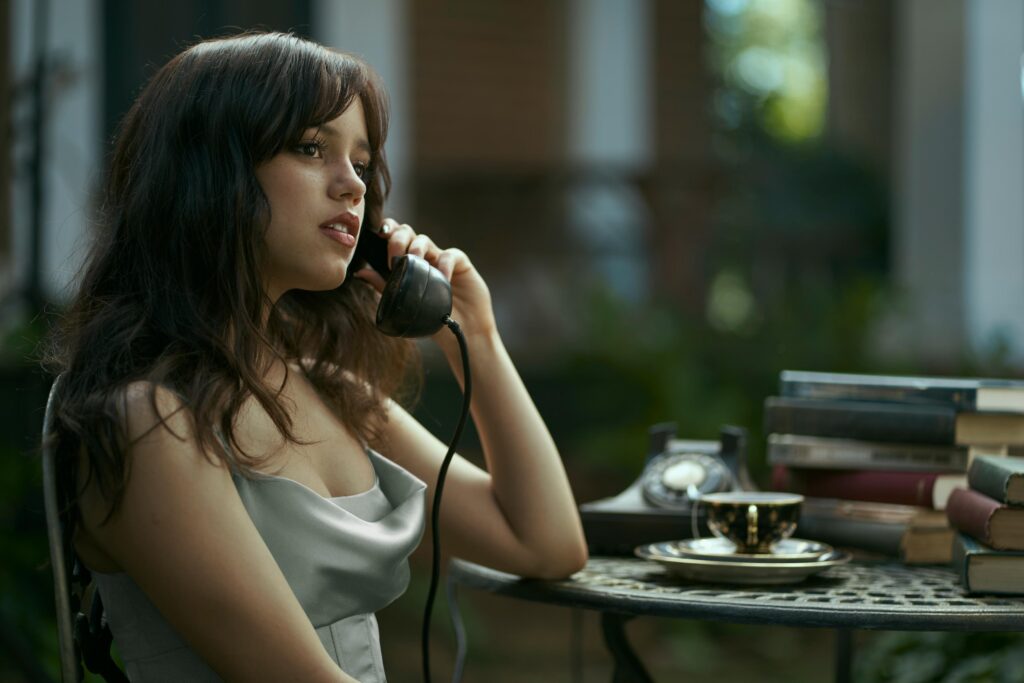
Jenna Ortega is not just a rising star in Hollywood; she’s also a voice for change. As the industry continues to explore gender-swapped roles, Jenna stands firm in her belief that original characters hold greater value. This bold stance has sparked conversations about representation and the future of storytelling in film and television. With her impressive body of work, Jenna has become an advocate for authenticity over imitation, challenging the norms while carving out spaces for unique narratives that reflect diverse experiences. Let’s dive deeper into why Jenna Ortega rejects gender-swapped roles and champions original creations instead.
Jenna Ortega and her stance on gender-swapped roles

Jenna Ortega has made her position clear regarding gender-swapped roles in Hollywood. For her, these reinterpretations often feel like a missed opportunity. While she appreciates the intention behind them, Jenna believes that they can overshadow the need for authentic storytelling.
She argues that too often, studios rely on familiar narratives instead of exploring new and original characters. This approach may seem safer financially but limits creativity and true representation.
Jenna’s commitment to originality emphasizes the richness that fresh stories bring to audiences. By focusing on unique characters crafted specifically for diverse voices, she envisions a landscape where everyone sees themselves reflected authentically.
Her stance is not just about rejecting old ideas; it’s about advocating for innovation in character development and narrative arcs within the industry.
The Hollywood trend of casting female actors in traditionally male roles
Hollywood is experiencing a notable shift. The trend of casting female actors in traditionally male roles has gained momentum. It sparks conversations about empowerment and representation.
On one hand, this approach aims to showcase women’s strength and versatility. Iconic characters are reimagined, allowing actresses to bring new dimensions to familiar stories. Audiences celebrate these performances with enthusiasm.
However, there’s a flip side. Some critics argue that gender-swapping existing roles can overshadow the need for original narratives specifically written for women. This leads to questions about authenticity and depth in character development.
While diversity is crucial, simply swapping genders may not always be the best solution. There’s immense potential in creating fresh characters that resonate uniquely with viewers across various demographics.
As Hollywood navigates this evolving landscape, discussions around storytelling will continue to emerge as pivotal elements of progress in film and television.
The impact of this trend on representation and diversity in media
The trend of gender-swapped roles has sparked considerable debate in the media landscape. While it may seem progressive on the surface, it risks sidelining original narratives. By reshaping established characters, we often miss out on creating new stories that reflect diverse experiences.
This approach can inadvertently reinforce stereotypes rather than dismantling them. When female actors are cast in traditionally male roles, they may still be confined to pre-existing tropes that don’t fully showcase their potential.
True representation thrives when unique characters with distinct backgrounds and motivations take center stage. Original roles allow for richer storytelling and deeper connections with audiences.
When creators prioritize innovation over replication, true diversity flourishes. The industry has an opportunity to tell untold stories and celebrate varied identities beyond mere gender swaps—something fans increasingly crave.
Jenna Ortega’s view on the importance of original characters
Jenna Ortega believes that originality is vital in storytelling. She feels that every character deserves a unique voice and identity. This perspective challenges the trend of gender-swapped roles, which can sometimes dilute the richness of character development.
For Jenna, original characters offer fresh narratives that reflect diverse experiences. They allow for deeper exploration into themes often overlooked in mainstream media. When characters are crafted from scratch, they become more relatable and authentic.
She passionately advocates for stories where women shine not because they mirror male counterparts but due to their distinct journeys. By prioritizing original roles, Jenna aims to inspire future generations of storytellers and actors alike. The empowerment found in these unique portrayals resonates with audiences on a profound level.
Examples of Jenna’s past roles and how they break traditional stereotypes

Jenna Ortega has a remarkable ability to challenge the status quo with her choice of roles. In “You,” she portrays Ellie Alves, a sharp and resourceful teenager who navigates the complexities of obsession and manipulation. This character defies typical teenage stereotypes, showing depth and intelligence.
In “The Fallout,” Jenna plays Vada Cavell, a high school student dealing with trauma in an authentic manner. Her performance sheds light on mental health issues often brushed aside in mainstream media.
Even as Wednesday Addams in Netflix’s “Wednesday,” Jenna redefines the iconic character. She brings modern sensibilities while maintaining Wednesday’s gothic charm and wit, transforming her into a relatable figure for today’s audience.
Through these characters, Jenna showcases young women as multidimensional individuals rather than mere archetypes. Each role highlights her commitment to authenticity in storytelling, setting new standards for female representation.
The positive response from fans and critics to Jenna’s approach
The response to Jenna Ortega’s stance on gender-swapped roles has been overwhelmingly positive. Fans appreciate her commitment to authentic representation. They resonate with her belief that original characters can tell richer stories.
Critics have praised her perspective as a refreshing change in Hollywood. Many agree that creating unique roles allows for deeper exploration of identity and experience. It’s not just about filling male shoes; it’s about crafting narratives that reflect diverse voices.
Social media buzzes with support for Jenna’s choices, illustrating a growing demand for originality over rehashed ideas. This shift is empowering aspiring actors and writers alike, encouraging them to embrace their identities through new characters.
Jenna’s fans feel heard and seen in the industry thanks to her advocacy. The dialogue around representation continues to evolve, paving the way for more inclusive storytelling moving forward.
Other actors who have rejected gender-swapped roles and advocated for original
Jenna Ortega is not alone in her stance on gender-swapped roles. Several other actors have also chosen to prioritize original characters over traditional reimaginings. For example, Emma Stone has expressed her discomfort with the idea of playing male roles simply because it’s a trend. She believes that creating new narratives for women can be just as powerful and engaging.
Similarly, Charlize Theron has spoken out about the importance of storytelling that isn’t reliant on existing male characters. She emphasizes that female-led stories should stand on their own merits without needing to borrow from established male archetypes.
These actors, like Jenna Ortega, understand that true representation comes from developing unique characters rather than reshaping old ones. By advocating for original narratives, they are paving the way for more diverse and authentic portrayals in Hollywood.
As this conversation continues to evolve within the industry, it’s clear that there is significant support for fresh ideas and creativity—ideas that resonate with audiences seeking genuine reflections of their experiences. The push for originality brings hope for a future where storytelling becomes richer through innovation rather than imitation. Here’s the interview of the same.
Visit QAwire for more Hollywood news.


